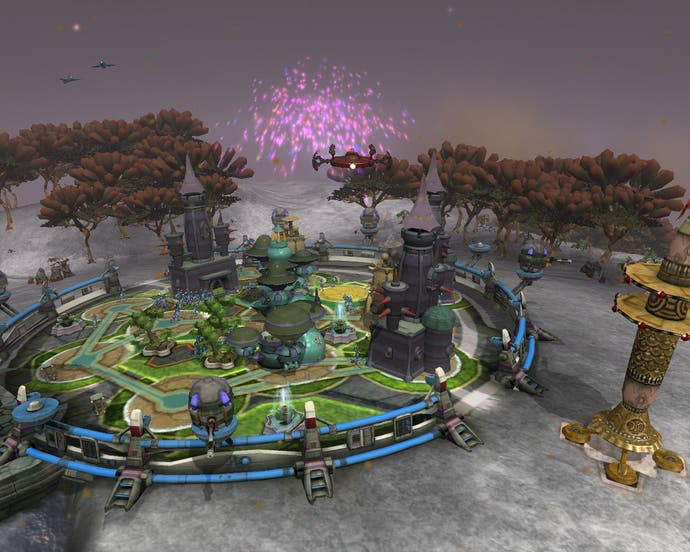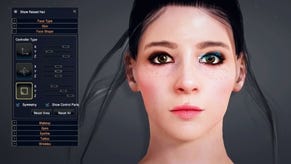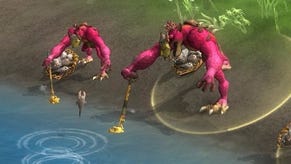Spore
We looked over the hill and we saw fire.
With enough huntering and gathering and copyright-infringing under your belt, you then progress to the Tribal phase, with a hut and a Costume Creator, and a mandate to ally or conquer neighbouring species as they reach the same stage as you. The mechanics are similar to Creature, with a few extra concerns; which instruments to give your social mob, how to split your force, whether that buffing breastplate is worth the aesthetic counterpunch. Do the needs of the tribe outweigh the needs of the visual reference?
The Tribal phase is over quickly, though, at which point it's time for Civilization, and here the creation tools start to stack up. You could borrow the work of others in the Sporepedia easily, but why would you do that? So you need a city hall, entertainment, a factory, houses and turrets, not to mention land, sea and air vehicles, and whereas the Creature Creator demands more compromise by forcing you to incorporate certain parts to improve key stats, with the Vehicle Creators the strengths of each component are distributed across a percentage scale of speed, health and might.
Outside your city borders are spice mines to control, which builds up resource to spend on infrastructure and units, and the goal is to conquer your continent and eventually the planet. We did this by imposing our beliefs: broadcasting a mile-high image of our singing chief to neighbouring infidels until they were normalised, but you can do it by force or diplomacy if you prefer.
With the world under your control, it's time to go to space, the Spore endgame, where your options suddenly multiply enormously. You can fight, colonise, trade, explore, establish relations; only a certain amount is imposed, and while there is a lot to do, you're prepared for it, thanks to what's arguably Spore's greatest trick: the hours you've spent up to now were an elaborate combination of character-creator and tutorial masquerading as a game.
It makes sense in reverse. Cell taught you the basics of survival; Creature showed you the virtues of social and militaristic growth; Tribal introduced you to society and multitasking; and Civilization honed everything and taught you to conquer on a massive scale and multiple fronts. You were designing your species - or rather Designing - and of course actually designing in the visual (and aural) sense as well; establishing your look and play styles by living through elaborate and occasionally brilliant examples.

And so to space, where the potential is still slightly overwhelming, but not too much. After a brief piloting lesson you take your spaceship - your avatar for the rest of the game - away from your homeworld by dragging back on the mousewheel and ascending through the atmosphere to witness your planet travelling past the sun in its green (ideal-for-life) orbit, and while you orbit a planet you can contact the people on the ground, receive missions, sell anything you've looted and buy upgrades, terra-forming equipment and more.
A few more wheel drags and you leave the system and get to pilot yourself to nearby alternatives on whatever premise. Pick somewhere you like and grind the wheel forward and you descend. Perhaps you'll make contact with a new species and trade, kill or befriend, or perhaps you'll just fly around the planet abducting plants and animals you like.
Travel is limited at first, partly by your ship's entry-level warp drive (forcing you to hop between local systems to reach the distant ones), and partly by the competing needs of your growing empire of colonies and network of friends and enemies.










